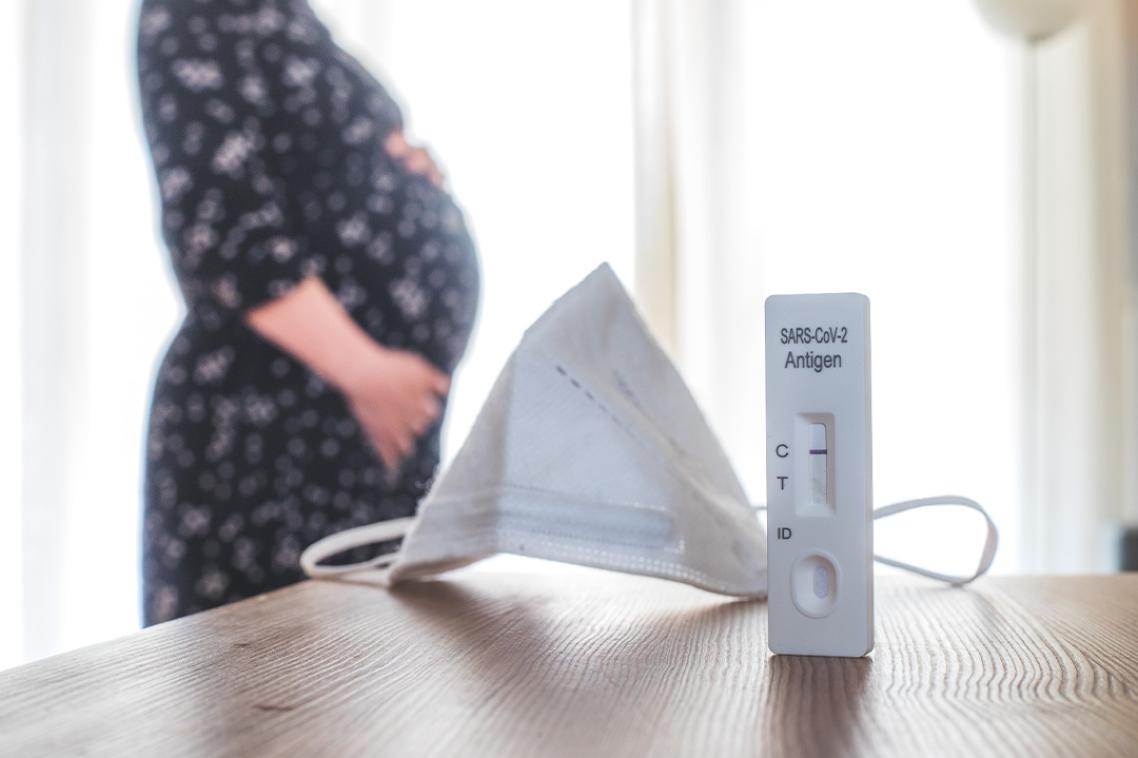Dangerous pregnancy complications linked to COVID-19

(Photo credit: Adobe. )
DNA changes consistent with life-threatening pregnancy complications have been found in the placentas of pregnant women infected by COVID-19, according to University of Queensland researchers.
Dr Arutha Kulasinghe from UQ’s Frazer Institute led a study which compared placental tissue from unvaccinated women who’d tested positive to SARS-CoV-2 within 15 days of giving birth, with the placentas of women who’d not been vaccinated or infected with the virus.
“We know viral infections in pregnancy can disrupt placental function and increase the likelihood of late-onset preeclampsia, preterm birth and stillbirth,” Dr Kulasinghe said.
“However, the mechanism through which COVID-19 predisposes pregnancies to these conditions has been unclear.
“Using digital spatial profiling, we discovered the virus disrupts placental function by altering the genomic architecture of the cells critical to providing nutrients and blood supply to unborn babies.
“We also found the DNA fingerprints of poor placental oxygenation, stress and pre-eclampsia in the COVID-19 patients.”
Co-authors, QUT researcher Dr Nataly Stylianou and UQ’s Dr Ismail Sebina said the research will enhance understanding about the impact of respiratory viruses on pregnancy health.
“We went down to the gene level to see what happens to the placenta when a woman gets COVID-19 during pregnancy,” Dr Stylianou said.
“The placenta struggles and kicks into recovery mode.”
Dr Sebina said infections in pregnancy have always been linked with complications.
“We know a lot about viruses like HIV, Hepatitis B and CMV, but it wasn’t clear how a respiratory virus in pregnancy could impact a baby in utero,” he said.
"We found strong links between COVID-19 in pregnancy and the pathophysiology of preeclampsia, a severe and common pregnancy complication.
“We have identified molecules in the placenta that could be the targets of future research to understand the underlying biology of this association.
“This is significant because we could predict which pregnancies are likely to progress towards preeclampsia – and intervene before it happens.”
The research began at the start of the pandemic in 2020 and was carried out in collaboration with QUT, Mater Research and hospitals in Brazil.
Dr Kulasinghe previously led studies mapping the impact of the virus on the heart and lungs.
Associate Professor Fernando Guimaraes and Professor Gabrielle Belz from UQ’s Frazer Institute also made significant contributions to the research.
The research paper is published in Clinical and Translational Immunology.
Topics
Related articles

Australia needs doctors – so why are hundreds of qualified international physicians unable to work?

Greater attention needed on community service workforce
Media contact
UQ Communications
communications@uq.edu.au
+61 429 056 139
